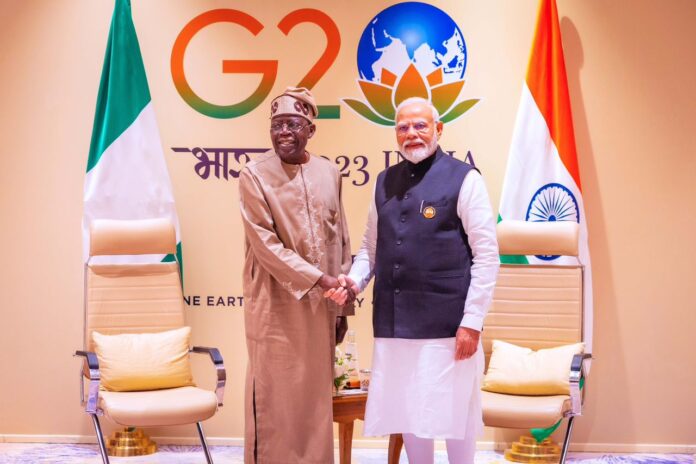Bridging Nations, Building Futures: Nigeria And India’s Golden Alliance By Abidemi Adebamiwa
When Indian Prime Minister Narendra Modi visited Nigeria, welcomed by President Bola Tinubu, it marked more than a diplomatic event—it was a golden opportunity for two powerful nations to collaborate. Nigeria and India share rich histories and vibrant populations, but the real question is: how can this meeting spark meaningful action?
Nigeria and India, both emerging from colonial histories, are now regional leaders. Nigeria stands as Africa’s largest economy, while India thrives as a global tech powerhouse. Both countries are resource-rich yet face similar challenges like unemployment, poverty, and infrastructure gaps. These shared struggles create fertile ground for cooperation and solutions.
Technology offers one such pathway. Imagine a scenario where Nigerian youth, instead of grappling with limited opportunities, are empowered through innovative tech partnerships. India’s IT sector, driven by companies like Infosys and TCS, has revolutionized global industries. By joining forces, Nigeria’s youthful population and growing tech startups could gain valuable skills and opportunities. Picture young Nigerians mastering coding, AI, and other digital tools with Indian expertise, or Lagos startups collaborating with Bangalore’s tech hubs. This isn’t wishful thinking—it’s achievable with the right focus.
Trade is another area ripe for growth. India already imports significant amounts of Nigerian crude oil, but this partnership can go further. Nigeria’s rich agricultural resources—from cocoa to sesame seeds—could meet India’s massive food demands. Meanwhile, India’s affordable medicines and machinery could revolutionize Nigerian healthcare and industries. It’s a win-win arrangement that could uplift millions in both countries.
Renewable energy presents another exciting opportunity. India’s advancements in solar and wind energy have reduced its reliance on fossil fuels. With its abundant sunlight, Nigeria could adopt similar solutions by partnering with Indian firms. Imagine rural communities powered by clean, sustainable energy instead of noisy, polluting generators. Such projects could create jobs, support businesses, and transform lives.
However, the relationship between Nigeria and India has not been without its challenges. Some Nigerians working for Indian companies have reported concerns about treatment in the workplace, including allegations of unfair practices and cultural insensitivity. Addressing these issues openly could strengthen trust and foster better relations at all levels. Additionally, President Tinubu has been urged to negotiate for the release of Nigerians allegedly imprisoned across 28 states in India, many of whom are believed to be victims of stringent immigration policies that fail to distinguish between genuine students, medical tourists, and legitimate businesspersons.
Beyond economics, there’s much Nigeria can learn from India’s governance strategies. Take India’s biometric ID system, Aadhaar. It has streamlined government services, reduced corruption, and ensured benefits reach the right people. Nigeria could implement similar technology to improve social programs and build public trust.
Countries like Brazil and China demonstrate how partnerships can drive progress. Brazil adopted advanced irrigation techniques from China, while China benefited from Brazil’s agricultural innovations. These mutual exchanges have propelled both nations forward. Nigeria and India can replicate such success, leveraging each other’s strengths.
And let’s not overlook cultural collaboration. Imagine Nigerian and Indian youths coming together for student exchange programs, joint research, and even blockbuster films uniting Bollywood and Nollywood. Such initiatives could foster lifelong connections and open doors for future opportunities.
Prime Minister Modi’s visit isn’t just a formal event—it’s a chance to reshape the future for both nations. By also addressing the less favorable aspects of their relationship, such as workplace concerns and lingering cultural misunderstandings, this partnership can become even stronger and more equitable. By focusing on shared strengths, Nigeria can unlock its potential, inspire its youth, and set an example for others. Together, Nigeria and India can build a partnership that turns challenges into triumphs and dreams into reality.




